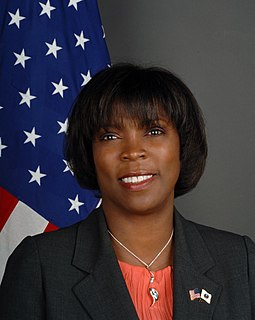A Quote by Ban Ki-moon
In 2009, at the height of the global economic crisis, it was clear that we were seeing something new: the impacts of the crisis were flowing across borders at unprecedented velocity.
Related Quotes
The crisis besetting America is not just an economic or political crisis; something deeper is wreaking havoc across the land, a mercenary and utilitarian attitude that demonstrates little empathy for people’s actual well-being, that dismisses imagination and thought, branding passion for knowledge as irrelevant.
Although this crisis in some ways started in the United States, it is a global crisis. We bear a substantial share of the responsibility for what has happened, but factors that made the crisis so acute and so difficult to contain lie in a broader set of global forces that built up in the years before the start of our current troubles.
2009 was a tough year, but Australia rose to the challenge of the global financial crisis. It shows what can be done when we all join together and work together, governments of all persuasions state, territory and local; businesses large and small; unions and local communities right across the nation.









































